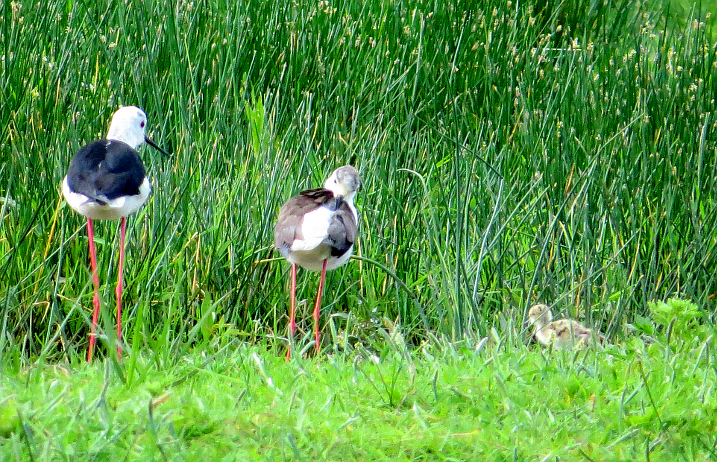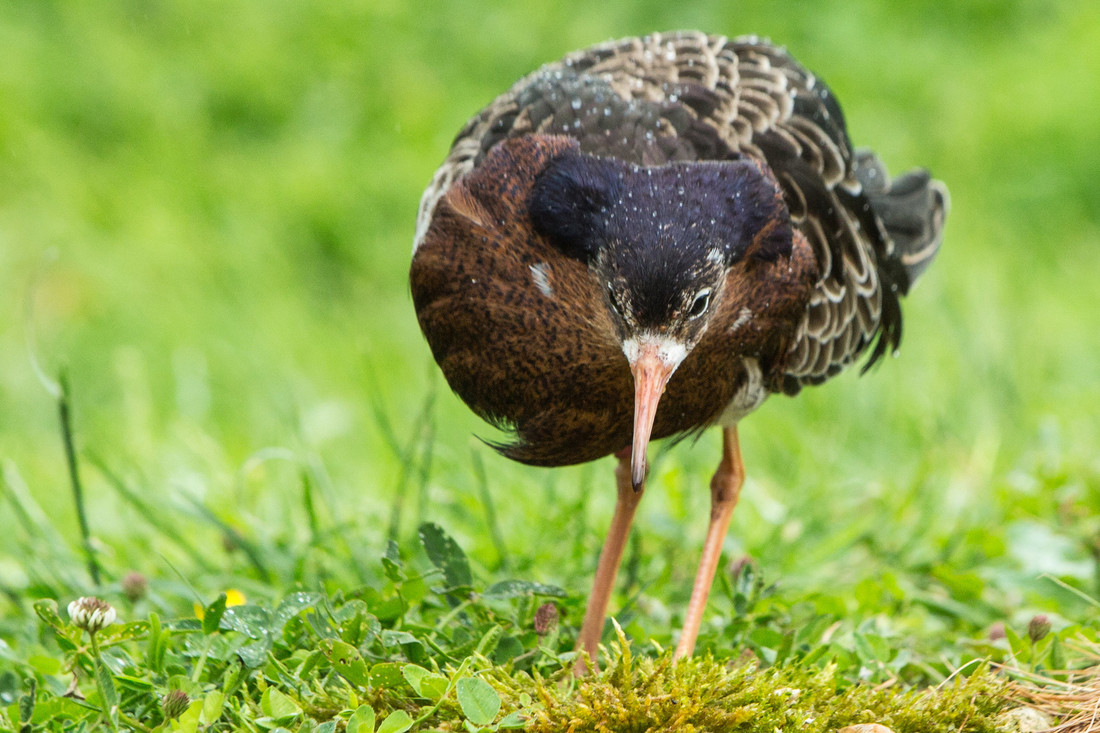Black-winged stilts hatch chicks for first time at WWT Welney

For the first time ever a pair of unusual wading birds, black-winged stilts, have chosen to breed on the reserve at WWT Welney Wetland Centre.
This species of bird has been a vagrant to the UK for many decades with a handful of nesting attempts in that time. This is also the first time this species has successfully hatched chicks at a WWT reserve in the UK.
Black-winged stilts are striking birds to look at, easily identified from other waders with their black & white plumage, thin black bill and long, spindly red legs. They are normally found around the Mediterranean, nesting within wetland habitat where they feed on insects in the water and mud. When conditions in their normal breeding areas are drier than normal, the birds can be displaced further North to the UK, to find more suitable conditions.
Hetty Grant, Assistant Warden, said:
“When the black-winged stilts started nest scraping, mating and then incubating their clutch I was nervous with anticipation, however their rarity in the UK made them a prime target for egg collectors.
“A surveillance team had to be assembled to protect these birds. Due to the unsociable hours I was astounded by the exceptional response of staff and volunteers; an incredible 25 people took part in our stilt watches, covering over 230 hours.
“So often we hear about the negative effects of humanity on the natural world, it is amazing to be part of WWT, an organization that plays a positive role with inspiring conservation stories like this one.”
These birds have chosen to nest on an area of wetland which was only created by WWT ten years ago. Lady Fen, as the area is known, is outside the Ouse Washes, and so is not affected by the late spring flooding which can occur after a period of heavy rainfall. Lady Fen provides the perfect habitat for many other wetland species including black-tailed godwit, snipe, shoveler, common tern and avocet, all of which are now raising young chicks and ducklings.
We have helped the stilts along to this stage by eliminating unnecessary threats of disturbance from egg collectors by putting in place round-the-clock surveillance, but now this particular threat is over the parents must do their best to protect their chicks from predators and the elements.



